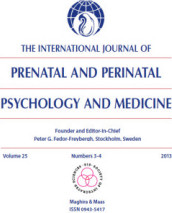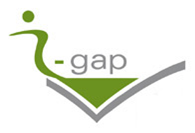Code Of Ethics
Ethics of Publishing
1. Publishing and authorship
– All the authors must contribute to the research. If there are authors who significantly contributed to the research and are not explicitly named or if there are authors named who did not contribute to the research, it is considered a violation against publication ethics and practice;
– Authors must state the source of financial support of the research and their professional membership (workplace);
– Published articles must contain a list of quotations in accordance to the citation standards of the journal;
– All the forms of plagiarism and publishing false information are unaccetable;
– It is forbidden to publish the results of the research in other journals;
2. Authors duties
– Authors are obliged to publish true and authentic information;
– Authors are expected to respect ethical approaches towards research subjects (this includes disposal of informed consent with taking part in the research and publishing personal data of research subjects);
– Authors should guarantee obtaining permission to use materials covered by copyright;
– Authors are required to participate in the review procedure;
– All the authors must cooperate with additional downloads or article corrections;
– For further information on the obligations of authors see also “Guidelines for contributors”;
3. Review procedures and reviewers obligations
– All the reviews must be objective;
– Personal criticism of the authors is unacceptable;
– Reviewing articles if confidential, name of the reviewer is public;
– In context of reviewing articles, reviewers should not have any conflict of interests;
– Reviewers should mention relevant published articles that have not been quoted;
– The publishing editors publishing in their own journals may not abuse their position (the process of assessment must be independent of the author);
– Reviewers should assess the manuscript within the deadline (30 days);
4. Editors duties
– Editors should: try to satisfy the needs of authors and readers; continually improve the quality of magazine; provide the quality of published material; assert the freedom of expression;
– Editors are fully responsible and authorized to accept / reject an article according to objective scientific criteria (such as originality, significance, clarity, etc.);
– Editors must accept authors´ right to appeal against their decision;
– Editors must not have conflicts of interests with the articles they accepted / rejected;
– Editors must publish deadlines for sending and receiving articles, descriptions of reviewing process and constantly update guidance to the authors about all the details that are expected from them (including the guidance on the criteria of authorship);
– Editors should be convinced of the accuracy of their decision when they decide to accept an article;
– The decision on accepting articles may not be changed by editors without serious reasons; new editors should not change previous decisions on accepting articles without serious reasons;
– Editors promote publishing of the corrections or downloading the articles in case errors or inaccuracies are displayed;
– In relation to the reviewers and the review process editors are obliged to: provide guidance for the review procedure; require elimination of any signs of conflict of interests from the reviewers; protect the privacy of the reviewers;
– In relation to the Editorial Board, Editors are obliged to: provide guidelines to new members including everything that is expected of them; inform current members about actual strategies and development of the journal;
5. Publisher´s obligations
– Publisher should: determine the relationship between the publisher, editors and other parties; respect personal freedom and right to protect private data (in relation to authors, reviewers, and other parties); protect intellectual property and copyrights; support independence of the editors;
– Publisher, in cooperation with editors, should state the strategies of publishing the journal and try to achieve these especially with regard to: independence of editors; research ethics (including confidentiality of particular data, informed consent of the respondents and other ethical requirements of the research in social sciences); authorship; transparency and integrity (conflicts of interests, research financing, standards on providing information about research); review procedure; appeals and complaints;
– Publisher, in cooperation with editors, should: communicate on strategies of the journal; periodically revise journal strategies; support the integrity of research results; publish corrections, explanations and notifications on text withdrawal; publish journal content in accordance with stated dates.
Download the Code of Ethics by Clinical Social Work Association
In case of breaking of the Code of Ethics or of any complaints, please feel free to write a confidential email to the Editor-in-chief at: selfmirror@protonmail.com. Each of your suggestions will be properly considered and you will be informed about possible solutions. We are looking forward to your suggestions.
Our scientific journal follows the Globethics.net ethic rules and is obliged to adhere all COPE principles.
ISSN 2076-9741/ONLINE
ISSN 2222-386X/PRINT
Indexed by:


Scientific Partners




